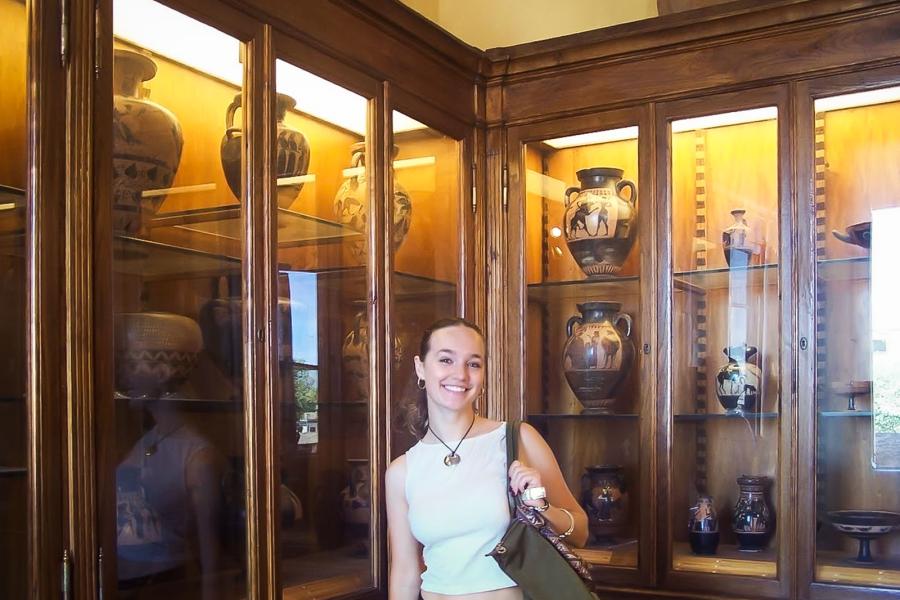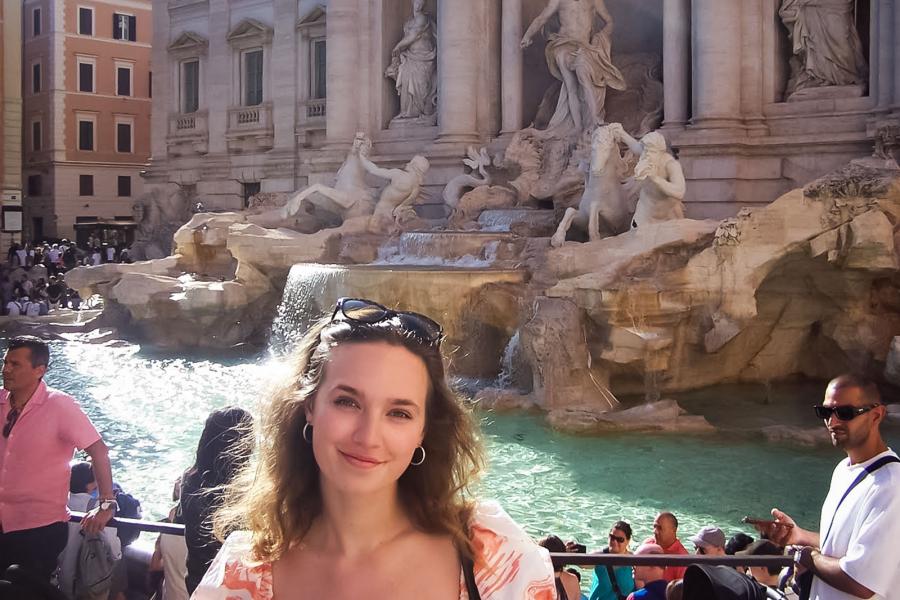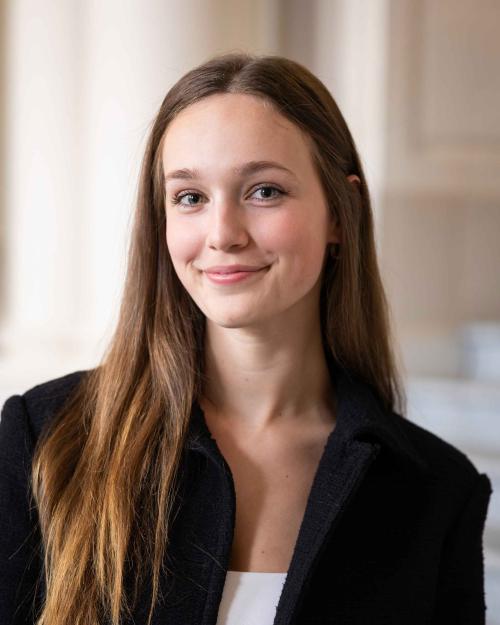Ashley Koca
Robert S. Harrison College Scholar, Near Eastern Studies & History of Art
Chicago, Ill.
What was your favorite class and why?
Without a doubt my Freshman Writing Seminar (FWS) ARTH 1100: Reading, Writing, and Seeing the Alhambra. Not only did this course change the trajectory of my education, but, really, my entire life. Coming from a math and science boarding school, I was very much a STEM-oriented person. I thought that using my FWS to explore alternative disciplines would be a wonderful way to maximize the credits that I would be taking and dip my toes into other departments without fully committing to an introductory course that I couldn’t be sure that I would love. This course, taught by the legendary Professor Cynthia Robinson, was my first encounter with both art history and Muslim Spain. I fell in love with Sufi poetry and the beauty of Arabic calligraphy — I became entrapped in the decoration of that palace and I don’t think I’ve ever really left. That class was first the reason that I became an art history major and eventually a Near Eastern studies major. Professor Robinson also became my major advisor, then my college scholar advisor, and then a member of my honors thesis committee. The Alhambra initiated me into a world that has really become my entire life and I wouldn’t have it any other way.

What are the most valuable skills you gained from your Arts & Sciences education?
My language skills! I think that the language requirement is a wonderful opportunity for students and something that I was glad to take advantage of. I completed two years of coursework in Italian before starting Arabic.
What have you accomplished as a Cornell student that you are most proud of?
I am very proud of how the development of my honors thesis has, in turn, nurtured me as both a writer and researcher. I have been working on this thesis since I was first admitted to the Robert S. Harrison College Scholar program during my sophomore year. Then, I had a sort of broad idea of the themes that I was really interested in and produced a proposal that I ultimately ended up significantly changing. These themes would direct my coursework for the next two years and lead me to the object that I would finally settle on as my thesis’ primary case study. I was incredibly fortunate to receive the Harry Caplan Travel Fellowship and Joseph E. Connolly Prize as a junior to support my summer research trip to Italy and the United Kingdom. While abroad, I discovered something really curious — three major British museums used the exact same object to talk about iconoclasm (image-breaking/the destruction of artifacts) in Islamic art history. I found this especially odd, because there is not a single publication that devotes more than the passing paragraph to trying to understand the event — the destruction of representational imagery is taken for granted as being religiously-inspired. This motivated me to question this assumption that continues to persist throughout scholarship, ignoring the potential communicative possibilities that image breaking offers. Coming back to campus, it was Professor Robinson who really showed me how to trust my gut and follow where my research was ultimately going to take me (dead ends and all). As a scholar and fiction writer, she provided me with techniques that can be used across disciplines to produce prose that is not only clear, but enjoyable to read. She also taught me that writing is an inherently wasteful process! Something that I resisted for quite awhile — but it’s the only way to get to the good stuff!

How have your beliefs or perspectives changed since you first arrived at Cornell?
As someone in area studies whose family is not descended from their region of interest, I would say that Cornell has helped me to understand truly how interconnected the world and its people are, and have always been (even when it is not immediately obvious). I am indebted to Cornell for giving me a sense of history and the continued relevance of the past and its influence on the world’s current affairs. Through this, I have discovered my true passion for culture and the responsibility we all have as global citizens to cultivate mutual understanding even without a familial “stake.”
What are your plans for next year?
I will be going to Harvard University to receive my A.M. in Middle Eastern studies and further refine my Arabic skills.
Every year, our faculty nominate graduating Arts & Sciences students to be featured as part of our Extraordinary Journeys series.Read more about the Class of 2025.




